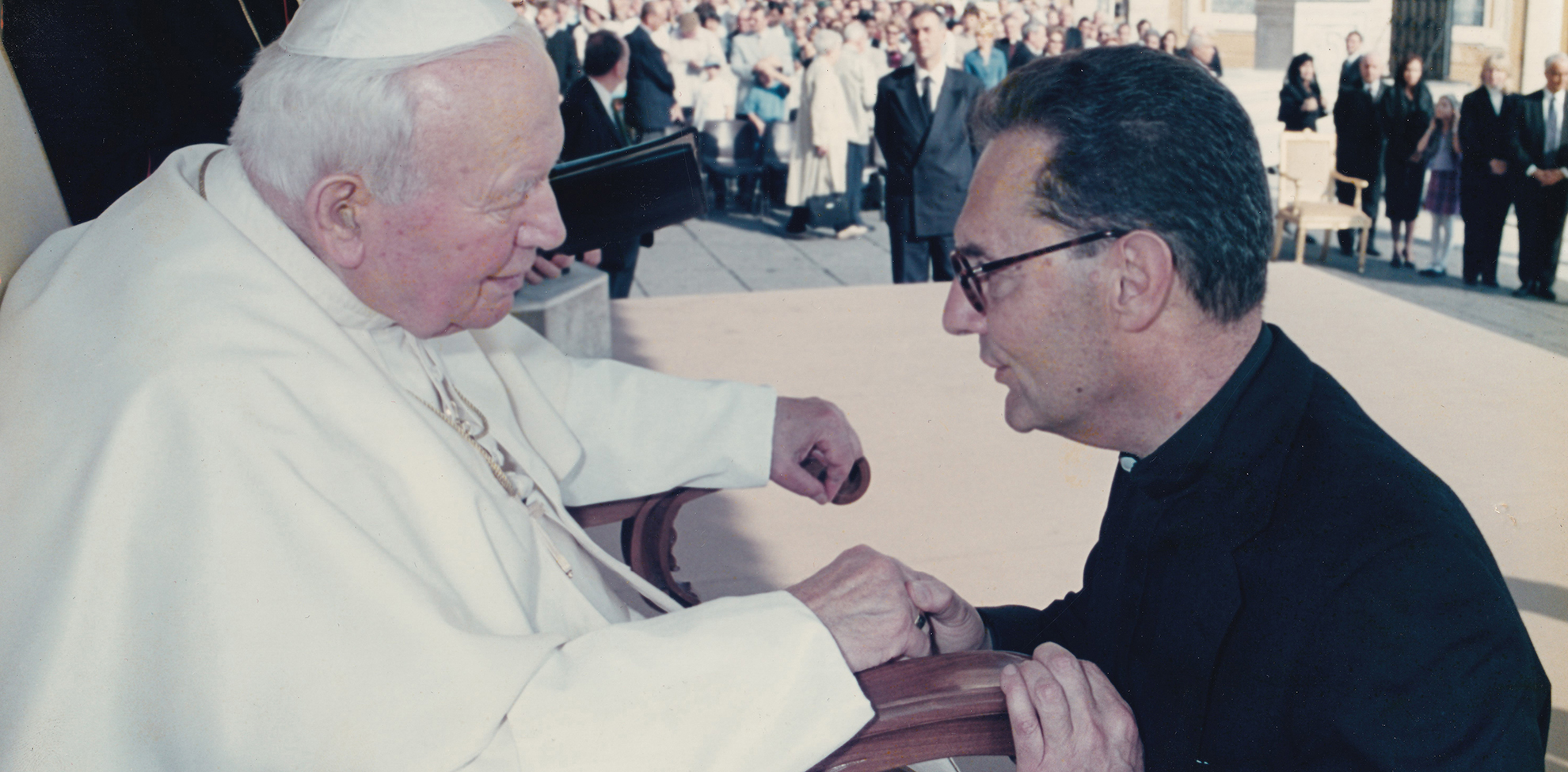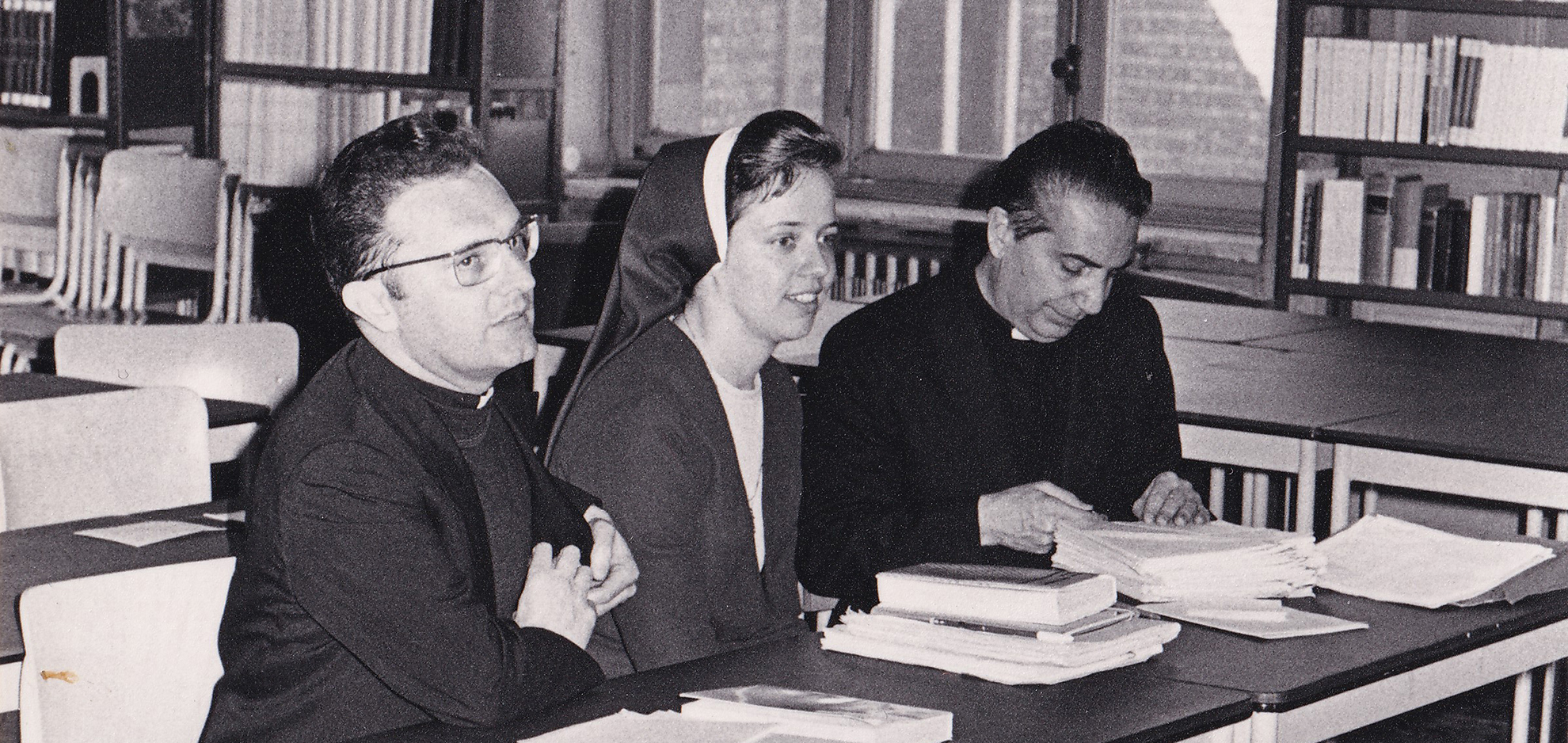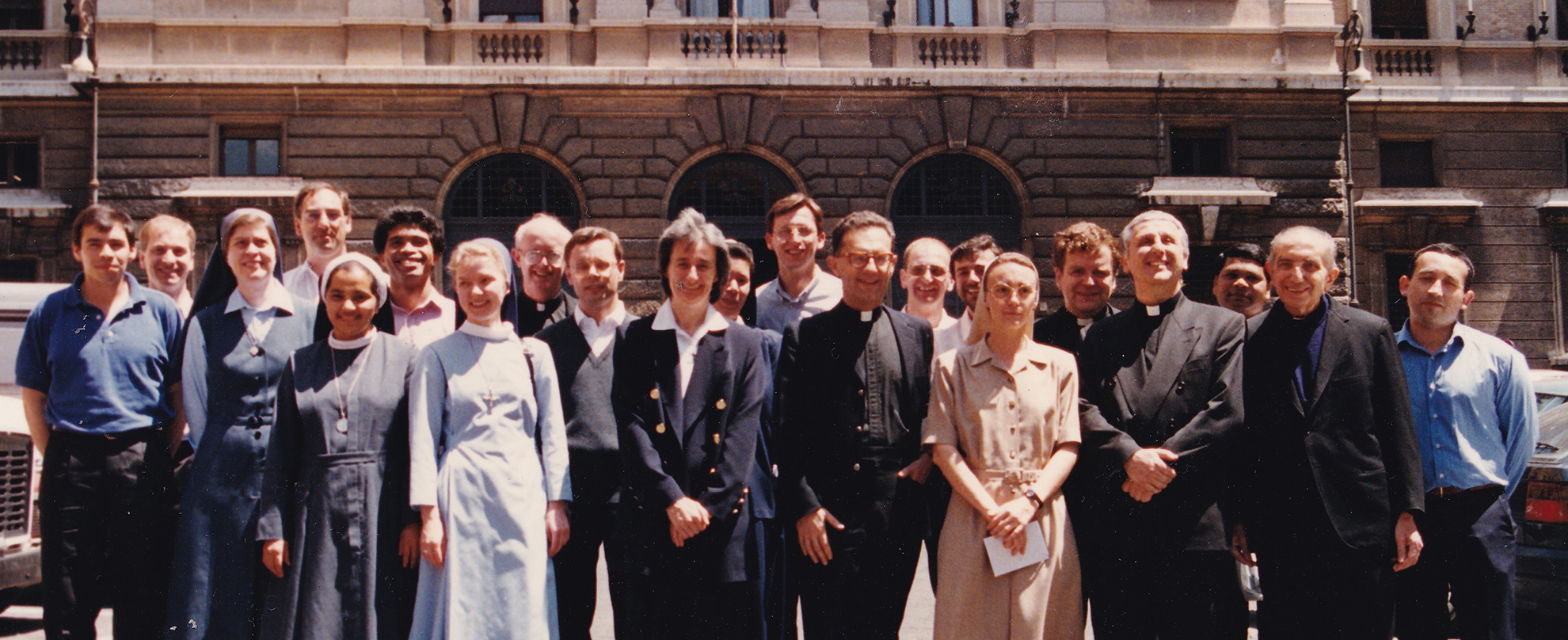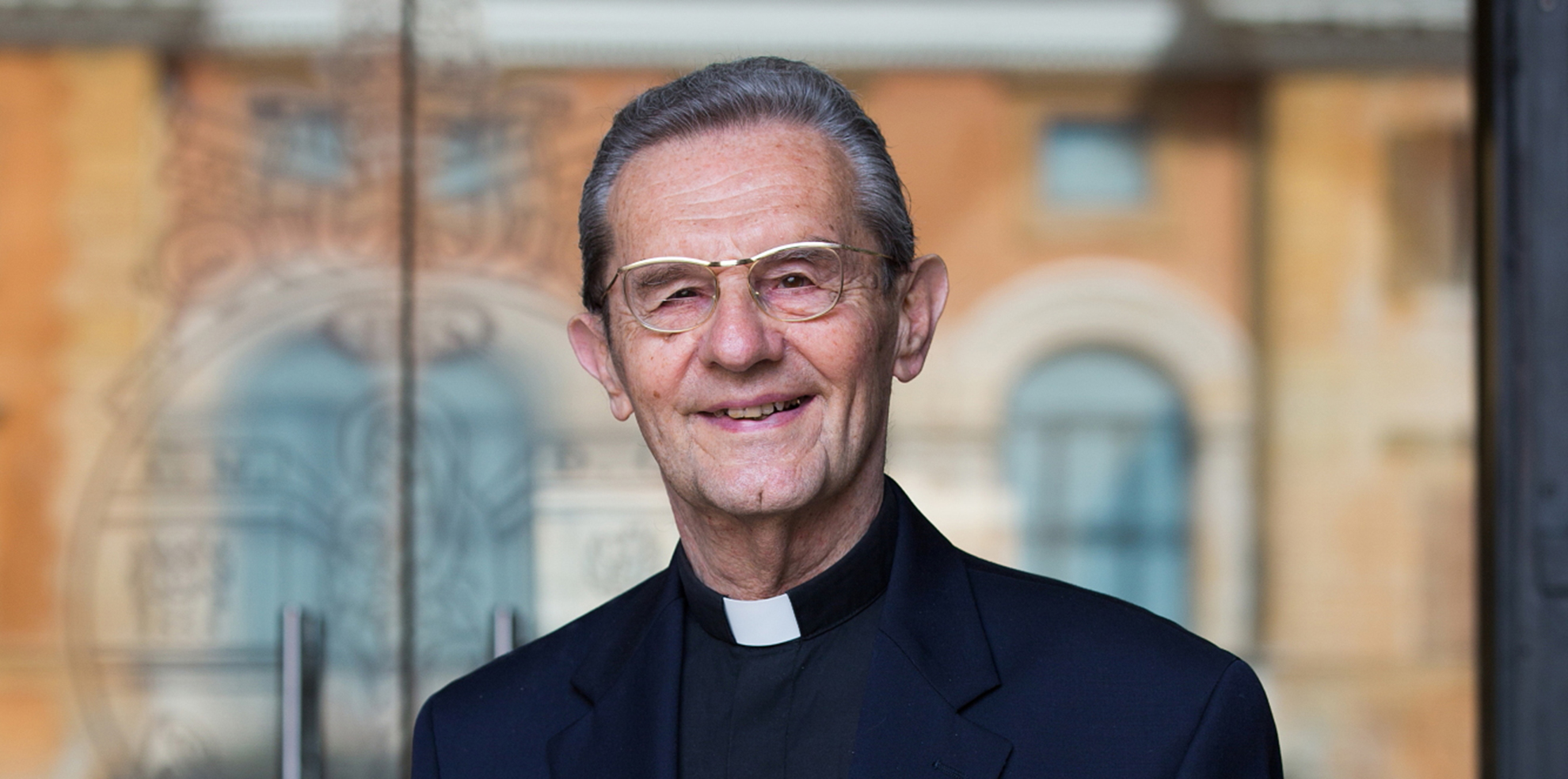- Home
- La Gregoriana
- 58 - To See All Things New in Christ
- Institute of Psychology, a 50-year journey (1971-2021)
Share:

Why an Institute of Psychology in a Pontifical University?
To which needs has it answered, and what intuitions have shaped it?
Fr. Franco Imoda S.J., one of the founders of the Institute
and Director for many years, shares a valuable testimony
of its beginnings, in celebration of its first 50 years
The Institute of Psychology, founded in 1971, aims to prepare professionals who will integrate the spiritual and psychological dimensions into the apostolic and educational activities entrusted to them in their respective territorial and cultural contexts. Its over 500 alumni now work as vocational formators and educators and in other positions of responsibility throughout the world.
In the last fifty years, the Institute sought to respond to the call of Vatican II addressed to those skilled in sciences, notably in “the social and psychological” sciences, to purify and bring to maturity the life of faith (GS 62). In so doing, the Institute seeks to offer an understanding of the human person - mindful of Christian values and the importance of subconscious motivations - as a solid foundation for helping others to grow in their vocation.
“Father Imoda, you are one of the founders of the Institute, serving as its Professor and Director for many years. What prompted the decision to set up this pioneering institution in the history of the Pontifical Universities?
“The Second Vatican Council was formally closed in December 1965 and special care for the human person was one of its many important messages. We are reminded of this in the Pastoral Constitution Gaudium et Spes, which underlines that the human person cannot fully find himself except through a sincere gift of himself (cf. GS 24), and that only in the mystery of the Incarnate Word does the mystery of man take on light (cf. GS 22). We at the Gregorian University felt especially compelled to heed this appeal. The Institute of Psychology, with its holistic approach to the human person and its intent to prepare vocational formators who have the competence to accompany others along their vocational journey, was a concrete response to this call.”

How were the beginnings?
“It was a time marked by enthusiasm and challenges. Our students represented a precious resource, and without them it would have been very difficult to promote true learning. Young people’s response - normally inclined to take on educational roles and before long representing different continents - their participation and commitment, reconfirmed the goodness of the project.
Looking back, I am grateful for the events that prompted me to teach Human Development. This provided a gateway into what Gabriel Marcel referred to as the mystery of human experience, starting from the richness of the adventure - including psychological - whereby each one of us is in a process of being that involves what we are “given” and our “calling.” At the start of the new study programme, the need to offer students a practical opportunity for “accompaniment” led to the creation of a Consultation Centre where they could engage, under the supervision/guidance of faculty members, in psycho-pedagogical processes known as “personality assessment” and “counselling on spiritual vocation growth.” Requests for this service abounded with a total of almost 14,000 people who referred to the Consultation Centre.”
How did the idea of approaching the subject of the mystery of the human experience from an interdisciplinary perspective come about? Why not just adopt a psychological approach - itself a very extensive scientific discipline - and “overlay” it with other sciences?
“Our experience in the curriculum of Clinical Psychology in a secular university, coupled with its copious richness and attractiveness, could not but highlight and inspire questions concerning the vision and reality of the human person, as referred to in the passages of Gaudium et Spes.
Simultaneously, Luigi Rulla S.J. and myself were working on an interesting research project at the University of Chicago’s Department of Psychology, in preparation for our doctorate degree. We were studying the reasons motivating young men and women to pursue a religious or lay vocation, focusing in particular on their maturity and perseverance. Two main trends emerged. The first indicated a high degree of immaturity, clearly distinct from a “pathology” and yet to be treated as a “fragility”. The second trend pointed to a conspicuous lack of evolution, growth and progress during their 5-6 year formation period.
Hence the question: what is missing? How can this great challenge be addressed by enhancing both the call to transcendence in the sequela Christi and the complex nature of the human person in a society experiencing complex transformations and across cultures? Could “a psychology” offer a contribution, in conjunction with spirituality?”

The Institute was rather small since its inception, with a restricted number of carefully selected candidates. What is the reason for this “elitism”? Did you consider opening the doors to everyone?
“In the light of what was suggested regarding the need for a learning programme offering an integration between the human (psychological) and spiritual realms, the number of students had to be small, also given the number of faculty and tutors involved in this challenging, exhaustive process. In the meantime, 14 centres for formators run by former students of the Institute were created in world countries. We formerly referred to these centres as ‘summer schools’, which reflected the urgency of these initiatives, established to respond to the aforementioned formation demands, frequently overlooked in local programmes. Over time, the ‘summer schools’ became recognised institutions: three in Africa, four in Latin America, four in Asia and three in Europe, engaging more than 500 alumni - for the most part in formation or leadership roles; with a Cardinal Prefect and a Secretary of Congregations in Rome relevant to formation.”

In the light of your many years of experience in personal accompaniment, which challenges have you identified in the accompaniment of young people today?
“Pope Francis has frequently referred to three levels/realities of the human person with three images: the eyes, the hands and the heart. In anthropological terms, we could say: knowledge/truth, taking action/willpower/freedom, and feeling/motivation. Within this horizon, philosopher Paul Ricoeur captured the weaknesses detected and identified by psychologist Heinz Kohut in postmodern youth. The lack of consistency in the world of knowledge, of meaning; lack of resolve in terms of willpower, and hence in terms of commitment to freedom; the lack of harmony in personal motivation, and hence serenity, joy.
The “forms”, the modes and expressions, vary in space and time, but a gaze and an approach that is limited to the “phenomena” could in many cases be the root cause of the absence of growth characterising flawed formative processes. As in Jacob’s fascinating experience of seeing a ladder to heaven, with the angels of God ascending and angels descending on it, in our widely varied experiences we are constantly confronted with the challenge of transcendence and immanence. It’s a fascinating challenge that poses a question for us still today: how can we accompany a person in search of his or her vocation in the dialogue/encounter with God who is always - in the words of St. Augustine - superior summo meo, but also interior intimo meo?”


